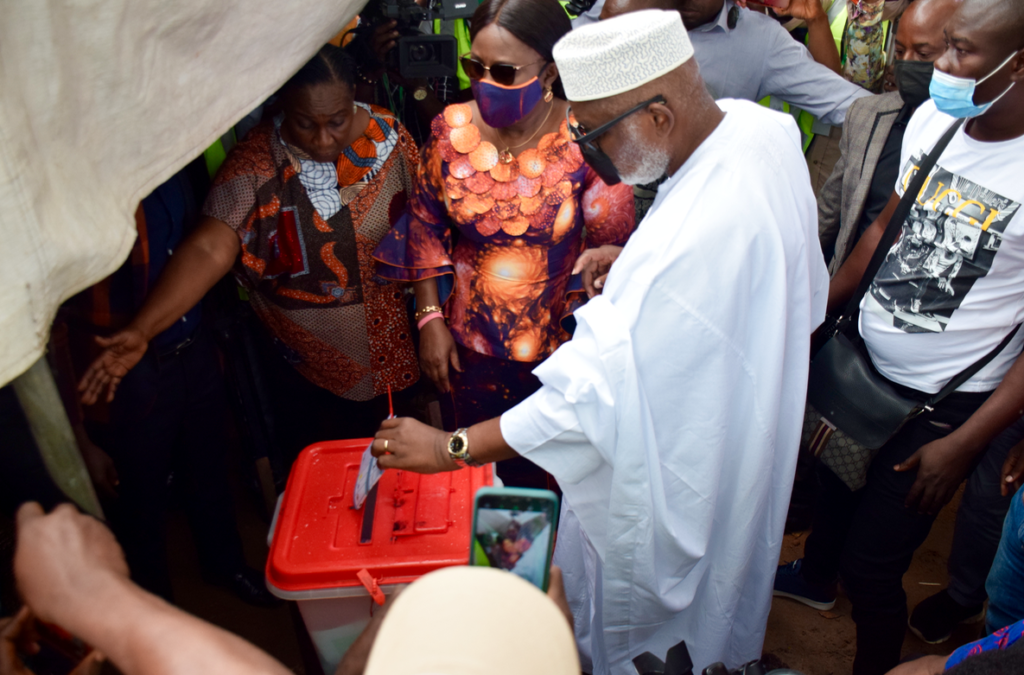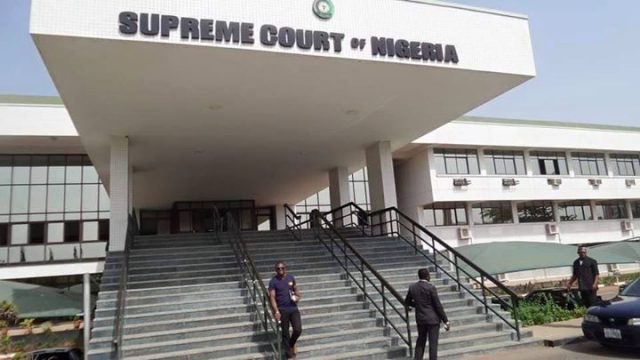Aiyedatiwa, Ondo governor
The wagon of off-cycle governorship elections will be in Ondo on Saturday. Seventeen candidates will have their crests printed on the ballot papers, although it is just a two-horse race between Lucky Aiyedatiwa, the incumbent governor and the candidate of the All Progressives Congress (APC), and Agboola Ajayi of the Peoples Democratic Party (PDP).
During the first tenure of the Rotimi Akeredolu administration, Agboola was the deputy governor. However, Agboola fell out with his principal and was replaced by Aiyedatiwa during the second tenure. Akeredolu died in December, and Aiyedatiwa was sworn in as governor to finish his principal’s tenure.
As Agboola Ajayi hopes to swing the state back for the PDP after 15 years, the voters will also appraise the ruling APC and the incumbent governor’s performance over the last few years.
It is decision time for over 2 million voters in Ondo, who will finally elect a new governor several months after most states have done so. Other states had elected their governors during the 2023 general election. Ondo is one of the eight states that hold off-cycle elections outside the usual general election. Other states are Anambra, Bayelsa, Edo, Ekiti, Kogi, Osun, and Imo. But how did this happen?
Advertisement
Upon the return to democracy in 1999, all elections were held around the same time across the country. All the governors were sworn in on May 29 that same year. All governorship tenures were synchronised.
Anambra was the first state to break off the aligned tenure system. Electoral malpractice during the 2003 governorship poll in the state took over two years of court hearings to be corrected, and the first off-cycle election was born. Chris Ngige of the PDP was declared the winner of the election and sworn in as the governor, but Peter Obi of the All-Progressives Grand Alliance (APGA) contested the result in court, and he won the case after about 34 months of legal battle. Obi then began a fresh four-year tenure on March 17, 2006.
The same thing happened in other states where off-cycle elections are now held. Candidates who felt cheated during the elections approached the court for justice. Consequently, the prolonged judicial path to restitution altered the electoral timetable of those states. Ondo was one of the affected states.
Advertisement
HOW ONDO GOVERNORSHIP POLL BECAME OFF-CYCLE

In the 2007 Ondo governorship election, Olusegun Agagu of the PDP and Olusegun Mimiko of the Labour Party were the leading candidates. Although they were allies, their ambitions drew them apart.
When Agagu became governor in 2003, he appointed Mimiko as secretary to the state government (SSG). In 2005, former President Olusegun Obasanjo pulled Mimiko out of the state executive council and appointed him as the minister of housing and urban development. Mimiko later resigned as minister to contest the 2007 governorship election against Agagu, his former principal, risking Obasanjo’s wrath. He exited the mighty PDP and pitched his tent with the relatively obscure Labour Party (LP).
Agagu was the incumbent and the candidate of the PDP, which also controls the federal government and all but one state in the country.
Advertisement
“Four months to the election – four months, December 14, 2006 – was when we inaugurated the Labour Party in Ondo state, and the election was April 2007. Four months and we formed a new party. We set up the structure, set up candidates,” the former governor wrote in his book ‘Mimiko’s Odyssey: A Biographer of Revelations’.
However, Agagu proved too formidable for his former ally. The incumbent polled 349,258 votes to defeat Mimiko’s 226,021 tally, according to the initial result released by the Independent National Electoral Commission (INEC).
An aggrieved Mimiko rejected the result and challenged the result before an election tribunal.
Despite the court case, Agagu was sworn in for his second term as the state governor.
Advertisement
But an upset was announced on July 25, 2008, over a year after the poll. A five-member tribunal, led by Justice Garba Nabaruma, nullified Agagu’s election and declared Mimiko the winner of the April 14 governorship election in Ondo.
In its over-an-hour judgement, the tribunal said Mimiko won valid votes in 12 out of 18 LGAs in the state. The electoral panel declared Agagu’s valid votes were 128,669 and recalculated Mimiko’s to 198,269.
Advertisement
Agagu’s camp described the ruling as a “travesty of justice” and tabled their discontent before a court of appeal, which was then the final adjudicator on governorship election disputes.
Seven months later, on February 23, 2009, a court of appeal in Benin, Edo state, upheld the election tribunal’s verdict.
Advertisement
Agagu had to step down after two years of what was supposed to be his second term in office. Mimiko was sworn in a day after the court of appeals verdict. According to the constitution, every governor has a four-year term, and Mimiko’s tenure began in 2009, two years after most of his colleagues had been in office.
Mimiko held the position for another four years following his reelection. He left office in 2017. Since then, the Ondo governorship election always comes a year and some months after the general election.
Advertisement
Add a comment









